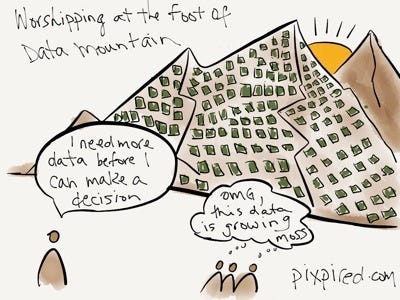Latest news about Bitcoin and all cryptocurrencies. Your daily crypto news habit.
 It’s good to share
It’s good to share
Once regarded suspiciously as a hippy-dippy attempt at social engineering, the sharing economy is now mainstream. In fact, offerings from companies such as online leasing company Airbnb — that now boasts 3,000,000 lodging listings in 65,000 cities and 191 countries — have become so mainstream that PricewaterhouseCoopers believe that nearly one-fifth of American consumers have now partaken in some type of sharing economy activity. The trend is set to continue too, with global spending on the sharing economy forecast to reach $335 billion by 2025, 50% of total spend.
As a society, we are very used to sharing information online (arguably too much, when it comes to social media!). Yet, one area that remains largely untouched by the sharing economy is that of data storage. In many ways this is strange, with digital data becoming central to all our lives and arguably more important today than it has ever been.
The big data mountain
The volume of today’s growing big data mountain is enormous. Current estimates are that there is now up to five zettabytes of information on the planet, and it could be ten times that by the end of the decade. The volume of data shows no sign of slowing either, especially with the Internet of Things (IoT) becoming more ubiquitous than ever. It’s estimated that by 2020 there will be over 20 Billion connected devices, increasing data to untold levels.
As the volume of data increases, so too does the demand for storage. Yet, current storage solutions have thus far failed to evolve in line with businesses’ needs. They continue to introduce too much risk and have struggled to scale efficiently to the levels of data we are now experiencing.
A blockchain-enabled decentralised storage model could provide the answer. After all, through its use within cryptocurrencies such as Bitcoin, blockchain technology has already proven it can handle the complex interplay of multiple data sources. As such, most commentators agree that across industry, the technology will prove to be truly transformational. My belief is that storage will be one of the battlegrounds that it will ultimately win too.
What makes a blockchain-enabled decentralised storage model so exciting though isn’t just that it is safer, more efficient and less expensive, but the fact that the storage itself isn’t provided by a single company, but by swarms of individuals across the globe. A society of shared resources if you will.
Remaining agile
With the digital transformation happening all around us, those businesses that are able to remain agile won’t just be the ones that will survive, but thrive. At their core, they need agile technical architecture that can scale automatically with capabilities, such as databases, that are able to support new initiatives to ensure they remain competitive.
With social media, IoT and mobile apps central to the digital transformation, all are producing more and more data, legacy database management services have become under-equipped to meet the needs of these modern, agile businesses. Not only are there problems around performance, reliability and scalability but there is an increased danger of data breaches due to the resulting massive amounts of data being held in singular locations. Managing large swathes of data in a decentralized way through the benefits of blockchain technology, eradicates those issues and provides agile businesses with the toolkit to be able to compete moving into the future.
Becoming the Airbnb of Data Storage was originally published in Hacker Noon on Medium, where people are continuing the conversation by highlighting and responding to this story.
Disclaimer
The views and opinions expressed in this article are solely those of the authors and do not reflect the views of Bitcoin Insider. Every investment and trading move involves risk - this is especially true for cryptocurrencies given their volatility. We strongly advise our readers to conduct their own research when making a decision.


